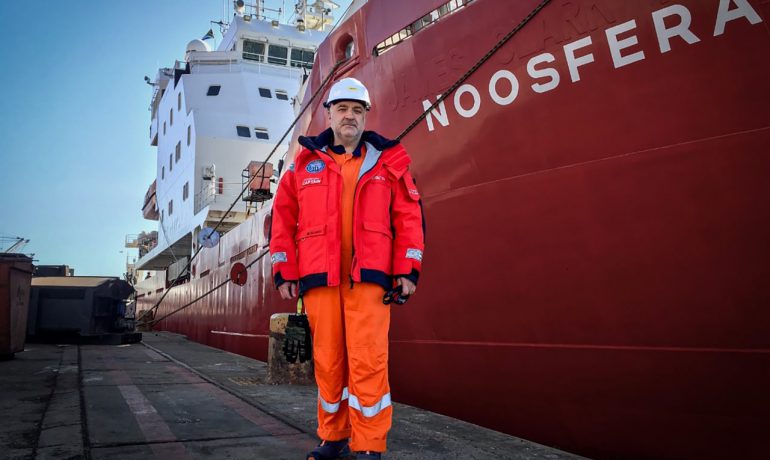Original article at DAYLY MAVERICK from 06 Jul 2022
By Tiara Walters
Header photo: Captain Pavlo Panasyuk next to the Noosfera, Ukraine’s new polar research vessel, at her anchoring position in the port of Cape Town. (Photo: Tiara Walters)
As their families tried to flee Russia’s brutal invasion, a Ukrainian captain and crew sailed into the heart of the Southern Ocean on ‘a special mission’ — with zero previous experience of braving Earth’s stormiest waters. Now, while the vessel seeks refuge in Cape Town, the country’s polar staff have joined the fight back home, the captain told Daily Maverick in this exclusive interview.
It may be telling that Pavlo Panasyuk, captain of Ukraine’s new polar research vessel, sailed into West Antarctica in late March. This was just weeks after Sir Ernest Shackleton’s Endurance had been found nearby — within waters opened up by record-low sea ice. Hunting down the elusive wreck more than 100 years after she had been swallowed by the Southern Ocean, the find — announced by a UK-led team aboard South Africa’s SA Agulhas — was sensational.
Not without its own accounts of bravery, Ukraine’s recently wrapped Antarctic maiden voyage aboard the Noosfera, the state’s newly minted polar research vessel, was taken on by a crew with no previous experience on the storm-ridden Southern Ocean.
The decades-old vessel had been bought from the UK for a bargain peppercorn deal and finished her dramatic season at the end of May in the port of Cape Town, an established Antarctic gateway. This marked Ukraine’s first independent voyage to Antarctica in two decades, despite the war on its domestic turf.
“Some people did not believe we could manage this job,” said 47-year-old Panasyuk, speaking from Noosfera’s new moorings. As conflict rages on in Ukraine, and the vessel cannot return to her Black Sea home-port in Odesa, she is forced to seek refuge in the shadow of Table Mountain until she is called back to Antarctica for renewed scientific research and supply duties in the 2022/23 summer.
“But we did it,” Panasyuk smiled, as he stood on the bridge.
Rescuing 27 countrymen — stranded for months in Antarctica’s punishing conditions without their expedition vessel — is a singular feat of polar endurance that will remain Shackleton’s preserve.
But thwarting Russia’s advance on Kyiv amid Europe’s largest land war since 1945 is now forever inseparable from Ukraine’s fêted “go f**k yourself” grit. And without the Noosfera’s intervention, it would have fallen upon another state to rescue Ukraine’s polar staff: the latest out of 27 overwintering expeditions to have served the war-torn nation’s West Antarctic interests since the mid-1990s.
Previously, Ukrainian researchers and technical support staff had travelled south on other expedition vessels.
But it was this “special mission” — collecting their compatriots with the state’s own ice-class vessel — that powered the 26-strong crew across treacherous latitudes, including the Roaring Forties and Furious Fifties, Panasyuk said. And under the 1959 Antarctic Treaty that sets aside the icy south for “peace” and “science”, it was also the vessel’s mission to study the Southern Ocean, and resupply Ukraine’s Vernadsky scientific research base with new staff and provisions to last the 2022 winter.
‘A special mission’ for polar rookies
The crew, largely hailing from the war-besieged cities of Odesa, Mariupol, Kherson and Mykolaiv, were virgin sailors of the Southern Ocean — in the most recent summer, dangerously booby-trapped with bergs after the sea ice had plunged to historic lows.
“I have worked almost everywhere on the ocean since I was 18. I have extensive experience on offshore industrial vessels, as well as underwater operations, but this was my first time in Antarctica,” the Odesa-born Panasyuk revealed. “For all the crew — they have huge international experience, but this was their first time, too.”
Joining the Ukrainians at the Canary Islands, senior British crew showed the Antarctic neophytes how to steer the vessel into the storied Southern Ocean.
“You ask, why did you go there? Because we all wanted to be in Antarctica. I thought … this could be that one chance to get to this amazing place,” Panasyuk mused. “And some other people? They pay big money to visit Antarctica. But this chance for us … it was relatively easy.”
It is Ukraine’s established friendship with the UK that delivered the 32-year-old Noosfera — previously the RRS James Clark Ross — to Odesa last October. Inspected by President Volodymyr Zelensky himself, the ice-class vessel had been the star of the UK’s polar fleet, until she was recently replaced by the souped-up RRS Sir David Attenborough. At nearly £200-million, the price tag for the new UK polar ship dwarfs the nominal amount spent by Zelensky’s government on the Noosfera. The former British ice-class vessel cost £4-million, noted an email by Ukraine’s National Antarctic Scientific Centre, the state agency executing polar interests.
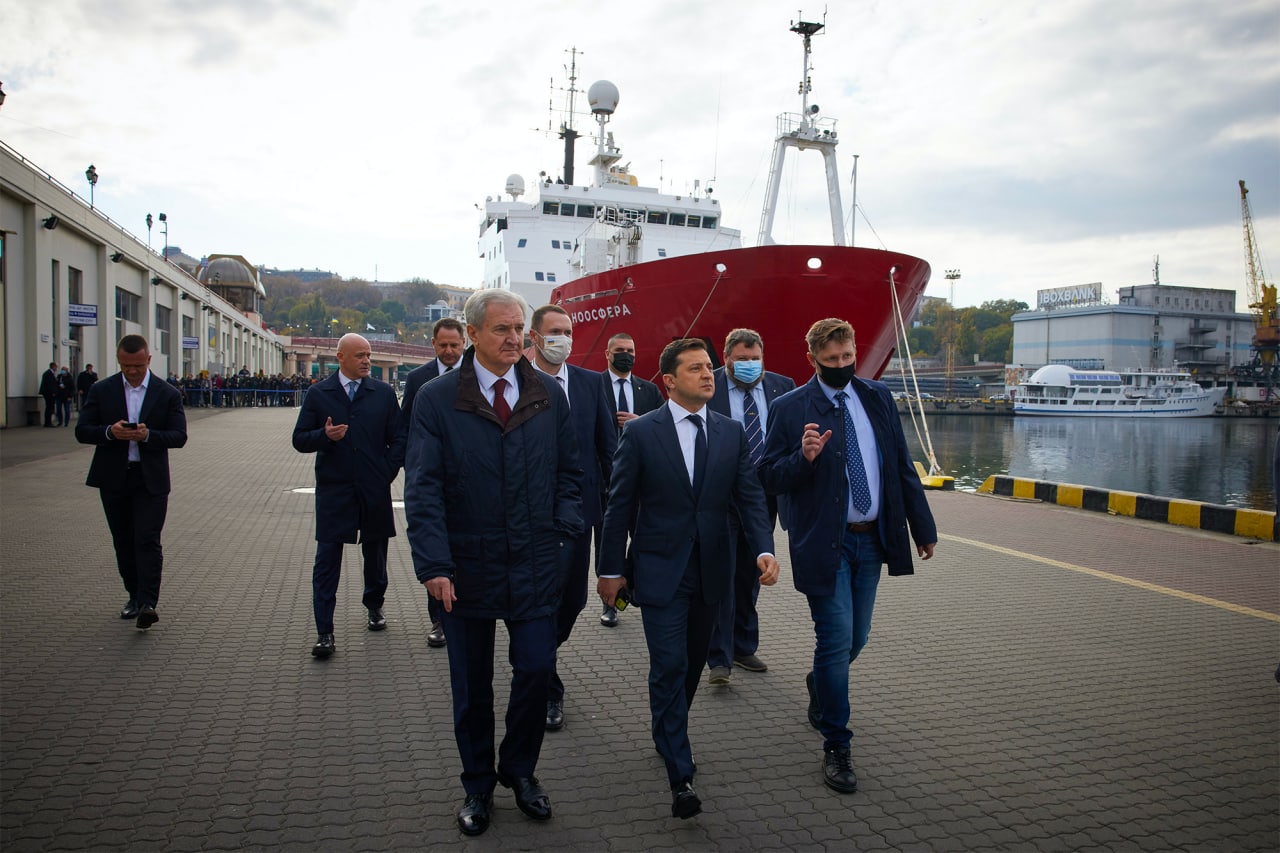
But, like Vernadsky, formerly a British base, the Noosfera appears to represent a goodwill sale to bolster Ukraine’s war-hammered presence in West Antarctica, where the UK maintains frozen territorial interests overlapping with similar claims by Chile and Argentina.
“When we crossed the equator, it was 22 February,” Panasyuk noted, stressing the urgency of a quest stretching into autumn — when the ice begins to regrow and fortress Antarctica against the outside world throughout the long, dark night.
“But after only one day … war in Ukraine. It was very difficult for the crew. All the time it was bad news. A serious mood settled over the ship,” he recalled.
“But, anyway, we had a special mission. We had to make the crew change for Vernadsky. It was the last chance to do it this season.”
Climate wars
“During our trip down, before we even received the bad news about the war, we had already been motivated. When we received the bad news from Ukraine, our motivation became higher. We understand — we are Ukrainian… ”
Panasyuk’s voice broke. He pursed his lips and looked away.
“I’m sorry, it’s a little bit hard,” he said. “We understand we are Ukrainian, we have to do it. Any weather. Doesn’t matter the condition of the ice. We need to do it, because our people are in Antarctica. That’s it.”
Named for the geochemist Vladimir Vernadsky’s “noosphere” hypothesis, which claims evolution is driven by a layer of human knowledge that wraps around the Earth, the Noosfera’s scientific work has been markedly slashed under war conditions. Still, she managed to lift sediments from the deep seabed as well as areas around the Argentine Islands, probing Antarctica’s geology, climate history and the behaviour of ice. Reading the radio spectrum, the science crew also peered into star-scattered geospace hundreds of kilometres above the vessel, and tens of kilometres around it — aiming to improve weather models and forecasts.
At Ukraine’s Antarctic Peninsula base off South America, the vessel picked up seasonal scientists and 12 overwinterers: including kitchen, mechanical, IT and medical staff; and researchers tasked with meteorology, biology and geophysics duties.
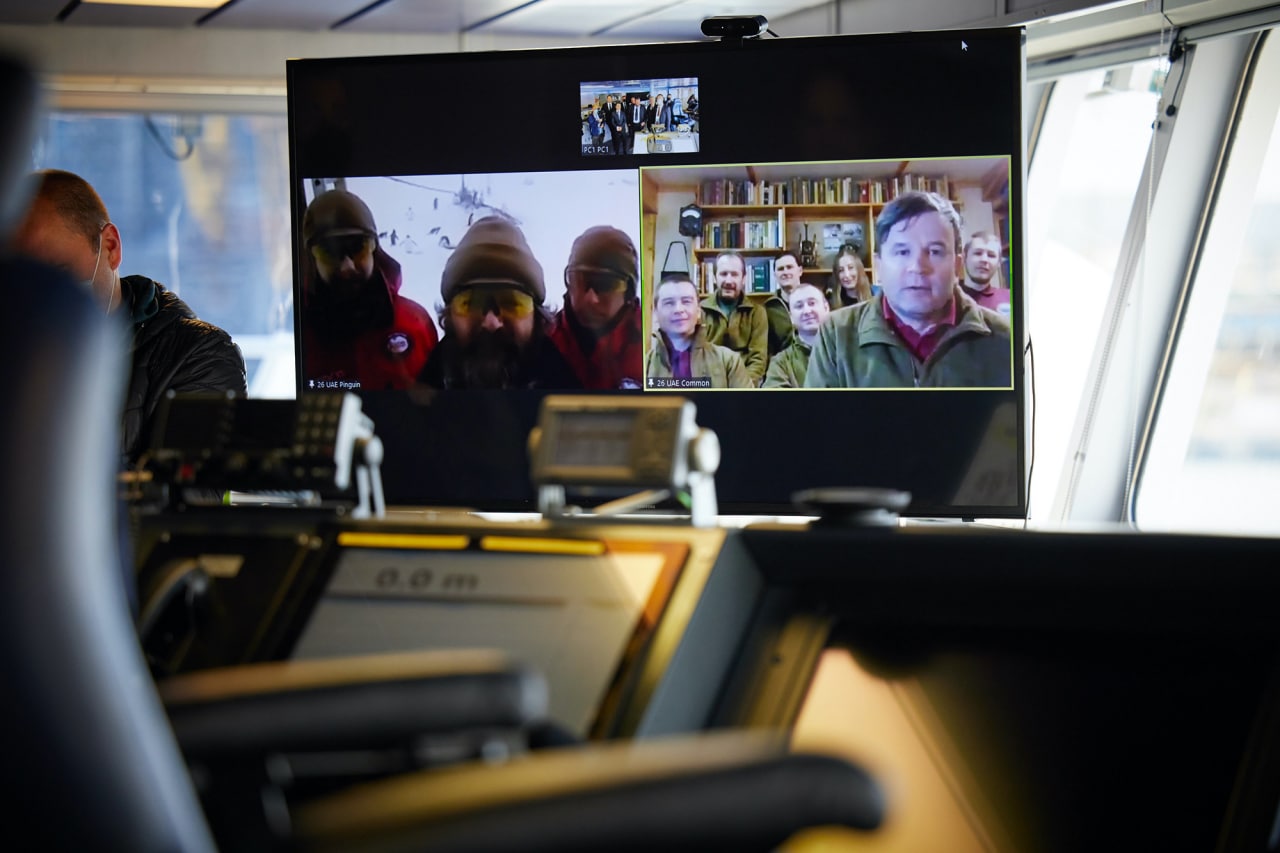
As the war on the other side of the world was deeply felt by the overwinterers (one scientist reportedly mistook radar activity for a Russian nuclear attack), a changing climate caused by human consumption waged its own onslaught upon the melting Antarctic.
In the first quarter of 2022 alone, temperatures rocketed by up to 40°C above normal. Shelves sheared off East Antarctica — that part of the continent once thought quite stable. And, on 25 February, the day after Russia invaded Ukraine, the extent of Southern Ocean ice thawed to historic lows.
“Antarctica is amazing, but it was stressful the whole time,” Panasyuk cautioned. “There were a lot of icebergs. Sometimes we had to cut through ice, but not too much … it was not proper ice.”
‘A second special mission’
Before turning towards the port of Punta Arenas in Chile, the Noosfera was called out on a “second special mission”, said Panasyuk — to scoop up “about 10 or 12” Polish researchers reportedly refusing to return home on a Russian ship plying the area.
“They were very happy to be onboard our vessel. They can see the difference between a Russian vessel and a Ukrainian vessel — our crew are friendly and positive. And we have good conditions on this vessel. They told us, ‘We want to work only with you — only with your vessel and your crew,’” the captain chuckled. “So, that was our second special mission.”
Poland also maintains a recently reactivated research station on the opposite side of the continent in East Antarctica, a distinctly remote stretch of icebound wilderness facing the Indian Ocean. From there a group of Polish researchers returned to Cape Town aboard the Akademik Fedorov, a flagship Russian polar vessel, in March.
However, the spectre of the Polish protest in West Antarctica reared its head again at the Antarctic Treaty’s annual meeting in May and June, when multiple member states including Poland, Ukraine and the UK — but not “non-aligned” South Africa — staged a walkout during a speech by the Russian delegation.
This meeting was held days after a year-long Daily Maverick investigation showed Russia had not stopped searching Antarctica for oil, gas and other minerals since the region’s 1998 mining ban kicked in. Extensive, Kremlin-backed mineral surveys into the Southern Ocean had been conducted via Cape Town.
Meanwhile, Neptune would smooth the Noosfera’s way across the caddish Drake Passage towards South America in a velvety day and a half — only to vent his pent-up wrath as the exhausted crew pushed on to southern Africa’s Cape of Good Hope.
“We have a lot of stories, but sometimes it is not easy to explain. Departing off South America took us 20 days. All the time we had bad weather — rolling, pitching, rolling, pitching,” Panasyuk sang, recalling fiendish waters in a nod to the hellish voyage. “Sometimes we had waves up to seven metres.”
‘Scientists running with Kalashnikovs’
A spokesperson for the National Antarctic Scientific Centre confirmed that the Noosfera would stay in Cape Town until the upcoming polar summer.
She may now be a hoary lady of the sea, with decades of notations crammed into the ship’s log, but Panasyuk explained she had life in her yet: “She can still do working expeditions like this one for at least 10 years — but we do need funding to maintain her in this tradition.”
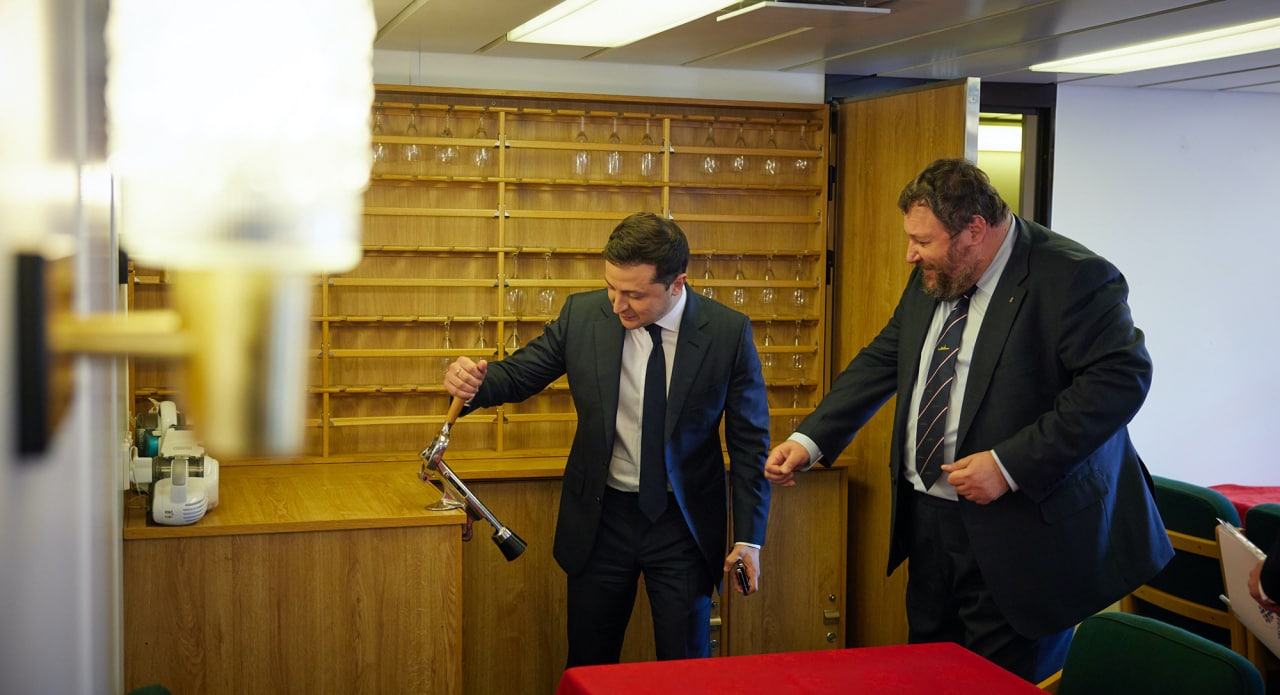
Despite war-induced budget cuts, Ukraine was expected to sustain its Antarctic presence through a condensed science programme and, potentially, proposals to rent the vessel for studies by other treaty states.
“And we have to get back to the Polish base, to exchange cargo and staff, because they don’t want to be on Russian vessels,” Panasyuk hastened to add.
However, while his sailors have just conquered the Antarctic, perhaps the seafarer’s ultimate challenge, some may have no homes to return to at all.
Panasyuk’s wife and daughter fled Ukraine during the war, and some crew’s families were safe; although other relatives — particularly those from ruined, Russian-controlled Mariupol — were still missing at the time of publication.
Most polar staff who had spent the past year in Antarctica have now continued their research, the centre confirmed by email, but not all are likely to lay eyes upon Far South’s aching beauty any time soon.
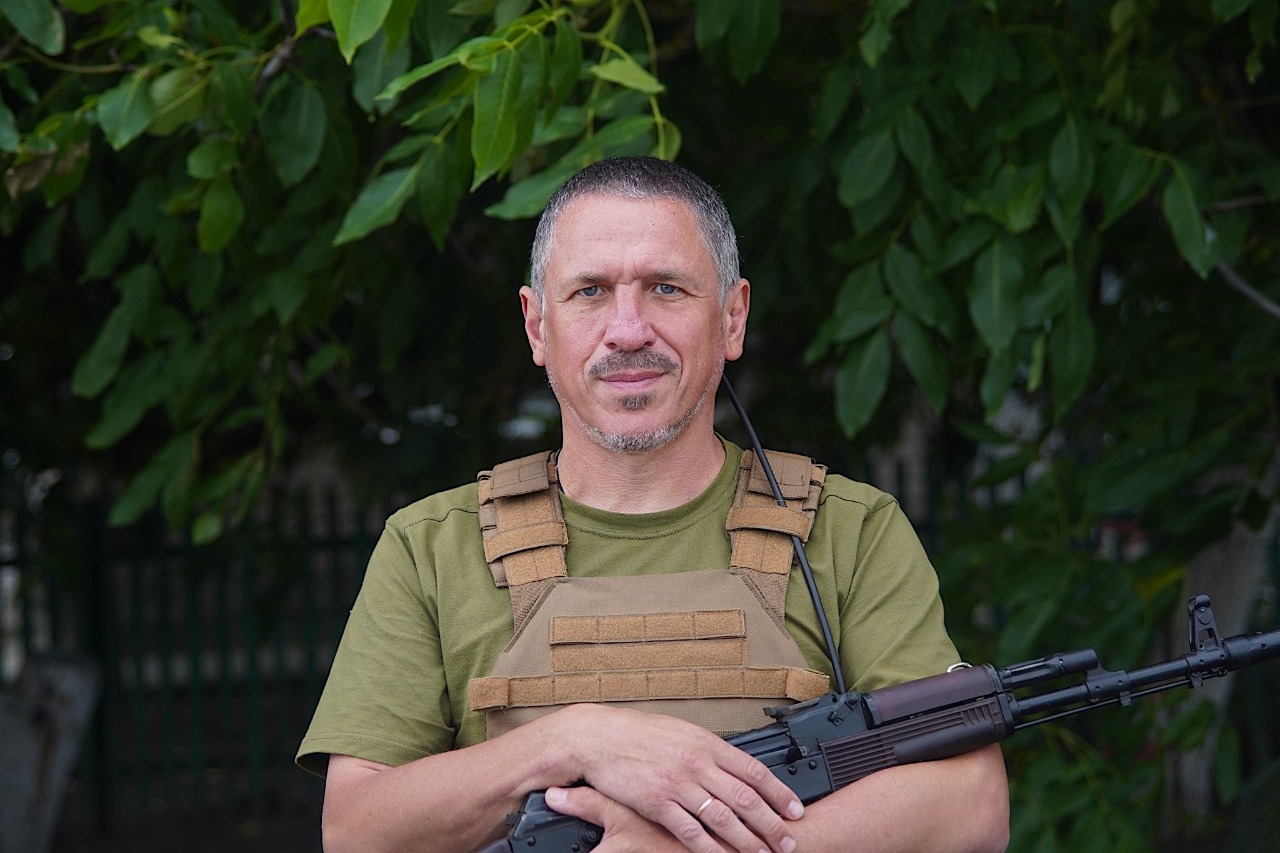
“The base commander and IT specialist have joined the Ukrainian army,” the centre noted. “The base commander is now in the border police and the IT specialist in [a] special operation unit.”
“Some of the crew want to go back to Ukraine for fighting with the Russians,” the captain added, peering out from the Noosfera’s bridge at his temporary new home on the southwestern edge of Africa. “I cannot do anything about that when people are at the end of their contract. They will go back to Ukraine. Some of our scientists there are running around with Kalashnikovs.
“Of course, now, the crew are a bit tired. They have already been on the vessel for months. But, anyway, we can still manage the next season. It’s easy, because now we know how.” DM/OBP


